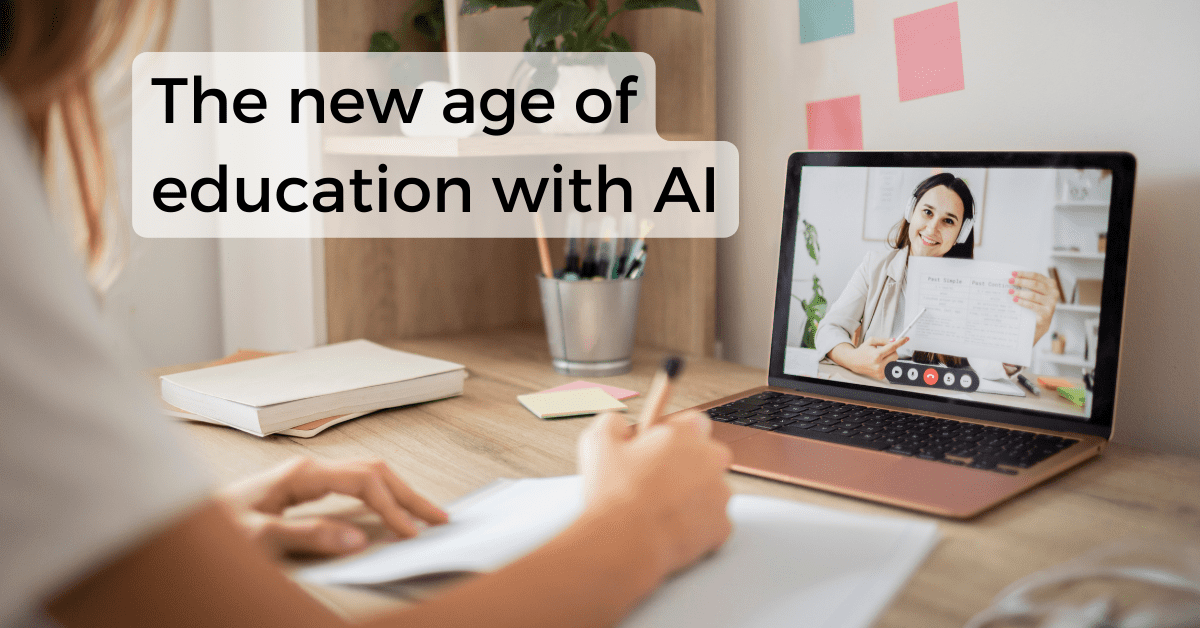Artificial intelligence presence is undeniably powerful in any industry. The education industry across the globe is no exception to this. While AI-powered solutions have been in the EdTech space for some time, the industry has been slow to adopt them. However, when the pandemic hit, the landscape of education changed, forcing educators to rely on technology for virtual learning.
Related post: Lessons from experts to enhance your Customer Life Cycle
The role of AI in the education industry
Machine Learning (ML) and Artificial Intelligence (AI) are key drivers of growth and innovation across all industries, and the education sector is no different. According to eLearning Industry, upwards of 47% of learning management tools will be enabled with AI capabilities in the next three years.
The way technology is used in classrooms has changed significantly in response to COVID-19. Rather than teaching in the traditional classroom, directly interacting with the students, lockdowns forced many educators to teach remotely, from their homes.
Following the research of Promethean, 86% of educators say technology should be a core part of education. The use of AI in education has given a completely new perspective of looking at education to teachers, students, parents, and of course the educational institutions as well.
>> Read more: Human Capital – Key lessons to nourish your own workforce
AI Benefits for Students
ᐧ Personalized learning
From kindergarten to school, AI affects education through the use of a greater level of individualized learning. With the use of AI, students now have a personalized approach to learning programs based on their own unique experiences and preferences. These systems collect the needs of the students and then emphasize specific subjects or knowledge that students haven’t really got the hang of. In general. AI helps to assist students with learning at their own speed.
Plus, AI-powered solutions can analyze students’ previous learning histories, identify their weaknesses and offer courses best suited for their improvement, providing many opportunities for a personalized learning experience.
ᐧ Quick response
It is a true frustration waiting for a teacher’s response while the due date is literally the next day. Being asked repetitive questions is not a pleasant experience for any teachers or the faculty. With AI’s assistance, it only takes seconds for common questions to be answered. This does not only save a lot of time and effort for the educators but also for the students.
In 2019, The University of Murcia in Spain tested an AI-enabled chatbot to answer students’ questions about the campus and areas of study. The school’s administrators were surprised to discover that it was able to answer more than 38,708 questions, answering correctly more than 91% of the time. Not only was this chatbot able to provide immediate answers to students outside of regular office hours, but university officials also found that the chatbot increased student motivation.

AI Benefits for Educators
ᐧ Personalized teaching
Just as AI can personalize students’ learning courses, it can do the same for educators. Sometimes, teachers may not know about the gaps in their lectures and instruction which can leave students confused on some topics. By analyzing the students’ learning abilities and history, AI can give teachers a clear picture of which subjects and lessons need to be reevaluated.
This analysis allows teachers to create a suitable learning program for all students. By analyzing each student’s specific needs, teachers and professors can adjust their courses before a student falls too far behind.
ᐧ Task automation
With the power of AI, most mundane tasks can be automated including administrative work, grading papers, replying to general questions and more. According to a Telegraph survey, teachers spend 31% of their time planning lessons, grading tests, and doing administrative work.
By accessing the school’s knowledge base, AI-powered chatbots can answer a variety of repetitive questions that students typically ask without involving a faculty member. According to a survey by TMW: “ A chatbot platform can answer as much as 80% of all standard simple questions”.
By that, teachers can have more time to focus on more important tasks such as lesson planning, in-depth research, or improving student engagement.
>> Read more: How many hours per week should you really be working?
Things to consider
It is very clear that human teachers can offer teachings that machines can’t. Artificial intelligence can help students through fundamental mathematics, writing, and different subjects. However, Ai can only teach students the fundamentals, but when it comes to creativity it cannot compete with real-world teachers.
Moreover, AI tutoring or other technologies cannot substitute for teachers or parental engagement and supervision.
We must also look at what criteria will be used to evaluate the appropriateness of all new technologies for children and youth in schools. Students’ and teachers’ data privacy and security mechanisms should also be taken into consideration before introducing either internet-based or AI programs for learning and teaching.
In order to apply AI in education in the best way, we need to be aware of its nature and potential for development. Love or hate AI, it can’t be denied that AI will keep progressing in the future and elevate the power of education.
JobHopin Team

